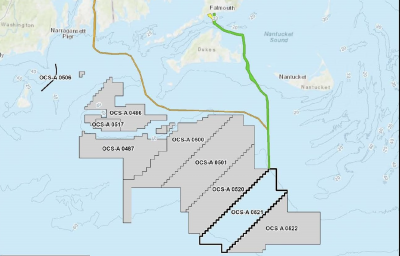Yesterday's Gulf of Mexico Lease Sale 253 in New Orleans generated over $159 million in high bids for 151 tracts covering 835,000 acres in federal waters. Twenty-seven companies participated in the lease sale, submitting approximately $175 million in bids.
“We are excited about the results from today’s lease sale, which show a continued upward trend for the year. The total from today’s lease sale and the March sale is the highest since 2015 for high bids,” the Interior Department’s Deputy Assistant Secretary for Land and Minerals Management Andrea Travnicek, said in a statement. “The Gulf of Mexico continues to be a critical part of our nation’s energy infrastructure strengthening our country through increased national security, job creation, and revenues for the American people."
Lease Sale 253 included 14,585 unleased blocks, located from three to 231 miles offshore, in the Gulf’s Western, Central and Eastern Planning Areas in water depths ranging from nine to more than 11,115 feet (three to 3,400 meters).
“The Gulf of Mexico is the crown jewel of our nation’s energy portfolio,” Mike Celata, director of the Bureau of Ocean Energy Management's New Orleans office, said in a statement. “As one of the most productive basins in the world, the development of its resources are essential to the nation’s energy security.”
“The somewhat modest results of lease sale 253 reflect the cautiously optimistic attitude of an offshore industry still in recovery," National Ocean Industries Association (NOIA) Vice President of Communications and Member Development Nicolette Nye, said in a statement. "While companies have improved the efficiency of their operations and rig rates and supply chain prices are more competitive, oil prices remain flat. Bidding activity today may reflect the slower than desired improvement in prices. There is also uncertainty surrounding pending regulatory actions such as financial assurance and fair market valuation.
“Deepwater and ultra-deepwater tracts drew high interest in this sale but shallow water tracts also proved to be attractive," Nye's statement continued. "Overall, todays’ sale demonstrates that the offshore oil and gas industry remains committed to the U.S. Gulf of Mexico. Each newly leased block represents a chance for further exploration, development and economic and energy opportunity. The U.S. Gulf of Mexico will continue to be a vital part of America’s economic and energy future.”
Revenues received from Outer Continental Shelf (OCS) leases (including high bids, rental payments and royalty payments) are directed to the U.S. Treasury, certain Gulf Coast states (Texas, Louisiana, Mississippi, and Alabama), the Land and Water Conservation Fund, and the Historic Preservation Fund.
BOEM has included appropriate fiscal terms that take into account market conditions and ensure taxpayers receive a fair return for use of the OCS. In recognition of current hydrocarbon price conditions and the marginal nature of remaining Gulf of Mexico shallow water resources, these terms include a 12.5% royalty rate for leases in less than 200 meters of water depth, and a royalty rate of 18.75% for all other leases issued under the sale.
Lease Sale 253, livestreamed from New Orleans, was the fifth offshore sale held under the 2017-2022 National Outer Continental Shelf Oil and Gas Leasing Program. Under this program, 10 regionwide lease sales are scheduled for the Gulf, where resource potential and industry interest are high, and oil and gas infrastructure is well established. Two Gulf lease sales will be held each year and include all available blocks in the combined Western, Central, and Eastern Gulf of Mexico Planning Areas.
All terms and conditions for Gulf of Mexico Region-wide Sale 253 are detailed in the Final Notice of Sale information package, which is available at https://www.boem.gov/Sale-253/.





